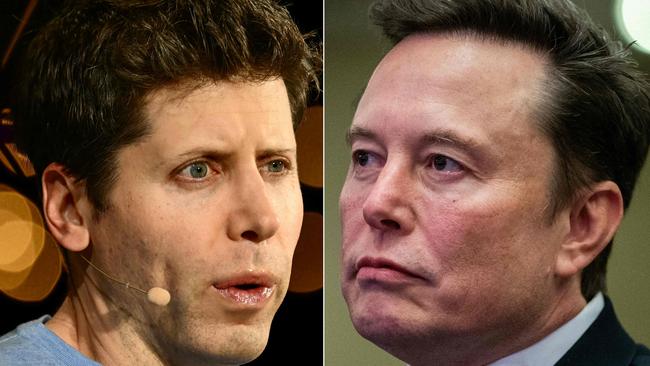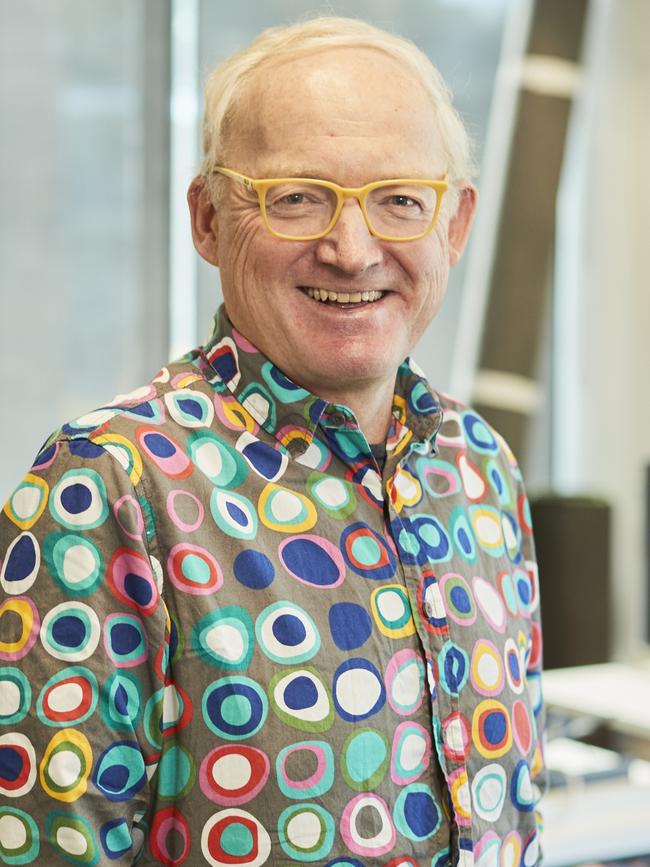Elon Musk playing ‘three dimensional chess’ with $155bn bid for OpenAI, experts say
Australian AI experts say there’s a bigger move at play behind a bid from an Elon Musk-led consortium to take over the ChatGPT controller.

Elon Musk’s $US97.4bn ($155bn) bid to gain control of OpenAI has raised concerns among some of Australia’s tech sector, with some experts glad the billionaire Tesla boss wants the company to return to its non-profit roots while others say Musk is playing a game of “three dimensional chess”.
On Monday in the US, a Musk-led consortium of investors threw the multi-billion dollar sum at the non-profit which controls OpenAI.
“It’s time for OpenAI to return to being an open-source, safety-focused force for good as it once was,” Musk said in a statement to The Wall Street Journal on Monday. “We will make sure that happens.”
Hours later, Sam Altman, the boss of OpenAI, shot down the unsolicited offer, and returned fire with an offer to buy Musk’s social media platform X at one tenth of the price.
“No thank you but we will buy twitter (sic) for $9.74 billion if you want,” he wrote on the same platform.
That might have been an offer of decimation from Mr Altman, said Australian AI expert professor Toby Walsh. “I don’t think Musk actually wants to buy OpenAI but he wants to settle scores with Sam Altman … particularly, I think he’d like to get rid of Sam Altman from OpenAI.”
But Musk might also have had a different strategy, one that ties into a court case Musk revived against OpenAI and Sam Altman in August last year, Professor Walsh told The Australian.

In October last year, OpenAI announced plans to become a for-profit operation. Three months earlier, Musk filed a suit against Open AI and Mr Altman alleging the company had put profits and commercial interests ahead of the public good.
“The three-dimensional chess is that this is playing into this court case that he has taken up against OpenAI,” Professor Walsh said.
Musk has put a value on the company via a consortium of investors and will argue in his case against OpenAI “that you can’t just give away something that’s worth a lot,” Professor Walsh said.
University of Sydney Computer Science lecturer Dr Armin Chitizadeh shared some support for part of Musk’s plan.
“While recruiting talent and running the infrastructure for machine learning tools is costly and cannot be sustained solely with donations, I would be glad if Mr Musk could make the company fully non-profit and run it as such,“ Dr Chitizadeh said.
Dr Chitizadeh said several years after it began, OpenAI saw no choice but to open a for-profit subsidiary “as recruiting talent and infrastructure for machine learning research was costly”.
“This was not their initial plan but it was made when they discovered that they could not continue their work and research solely on donations,” Dr Chitizadeh said.
James Cook University adjunct professor Hallam Stevens shared a more cynical view, adding that Musk’s offer was “by some accounts, consistent with his poor management practices at X and elsewhere”.
“Not only is Musk’s Trump-linked consolidation of power and control alarming, but also – assuming we think AI is strategically and economically important – we might be further alarmed by the fact that he will now be bringing his blunt approach to one of the leaders in this emerging field,” he said.
Adjunct Professor Stevens said Musk’s “efforts to ‘disrupt’ the government have proved both poorly thought through and potentially illegal”.
While he wasn’t a fan of Mr Altman, he believed Musk “may make things worse”.
Sam Cust, the Director at Hyper Startup Studio, said he was concerned that “OpenAI continues down a path of increased commercialisation, driving up costs, it only raises the barrier to entry for start-ups”.
“Ensuring AI remains open and affordable for start-ups at all stages is crucial for increasing the number of Australian start-ups in the market and keeping Australia competitive on the global stage. Whoever leads OpenAI moving forward, their priority should be ensuring AI remains a force for innovation, not just profit,” he said.






To join the conversation, please log in. Don't have an account? Register
Join the conversation, you are commenting as Logout